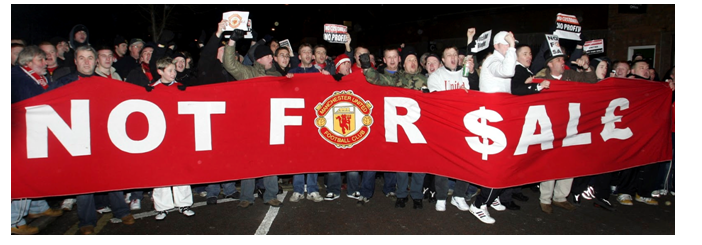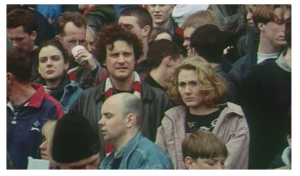Clubs Should Brace for More Backlash from European Super League Plans

On Sunday 18th January, Manchester United, arguably the world’s most recognisable football brand, played out a routine 3-1 win over Burnley in the Premier League. While not spectacular, it fortified their position in 2nd place in the Premier League and gave them breathing room in the race for Champions League qualification.
After a Premier League game, fans often head to online forums to discuss the match. But on this occasion, many of the comments from United fans were peppered with assertions that they could no longer support the club. Football365’s usual match report lead with the headline “United see off resilient Burnley, but, frankly, who cares?” The report contained little detail about the match.
So, what happened? During the game, there was a breaking news story – one that is still gathering pace at the time of writing. United and five other Premier League clubs, said to be Arsenal, Tottenham, Liverpool, Chelsea and Man City, are reported to be founding a breakaway European Super League (ESL). The sextet, known as the Premier League’s Big Six, are said to be joined by AC Milan, Internazionale, Juventus, Barcelona, Real Madrid and Atletico Madrid. Three other teams are expected to join, with the ESL saying it was “intended to commence as soon as practicable”.
Huge backlash from fans and pundits
To say that this idea has caused a furore is something of an understatement. Gary Neville, the co-commentator on the United game, could not hide his disgust and called for punishment of the clubs involved. There are some calling for the Big 6 to be relegated. FIFA and UEFA have suggested that the competition won’t be recognised and that it might ban players involved from international tournaments like the World Cup. UK Prime Minister Boris Johnson also condemned the move.
In fact, the condemnation has been almost universal. You would be hard-pressed to find a major news outlet in the UK with a positive report on the story. The Express called it “War”, The Sun said it was a “Footie Farce”, and The Mirror called it a “Criminal Act”. A quick look abroad, and L’Equipetermed it “La Guerre des Riches” (the war of the rich). But the ESL seems determined to press ahead, already sending a legal notice to FIFA in an attempt to stave off any punishment the body may hand down.
The idea of the ESL is that it will be a midweek competition running parallel to the domestic leagues. In that sense, teams from the Big 6 would still remain in the Premier League. But many are wondering how long that would last. And, how the Premier League would change without the incentive of Champions League qualification. The ESL, it is said, would be a direct replacement for the Champions League.
ESL has underestimated how fandom works
The ESL might be confident that it can eventuallysatisfy the legal requirements, but it is perhaps overlooked how the fans will react. If you haven’t read Nick Hornby’s Fever Pitch, which ranked as No.2 on this list of top 100 sports books of all time, you really should. It’s a wonderful book that gets to the heart of football fandom in England. Reading it will give you an insight into why most fans are aghast at the idea of a European Super League.
Fever Pitch does not just look at what it means to be an Arsenal fanbut looks at the circulatory system of football as it pumps through communities. It gives you an understanding of how clubs become entrenched in a community, and how they both enrich each other. A message from Fever Pitch is that fandom gives you a sense of place in the world and your local community. The ideals of the ESL are, for all intents and purposes, the opposite of that. Football becomes remote. Arsenal’s away days, which in the past might see thousands of fans take the Tube to East London for a game against West Ham, now become flights abroad, unaffordable for the average fan. As L’Equipe said, La Guerre des Riches.

And that’s the point we want to make here. Over the coming weeks, you will see plenty of discussion over the ESL. JP Morgan is said to be bankrolling the ESL to the tune of £4.5 billion. With that kind of money, it seems inevitable that it will go ahead, even if there is some sort of compromise. But for the average fan growing up and watching their local club play, football becomes remote – something to watch on television on PPV.
It remains to be seen how strong this backlash will be from fans. If you look at social media right now, it is aflame with passion on the subject. But fans will have to wait to use their voices in person. At the moment, they cannot take their place in the stands or protest the matches by not turning up, given the restrictions in attendance. But when the turnstiles open again, the Big 6 clubs should expect more backlash – many fans won’t forgive or forget.